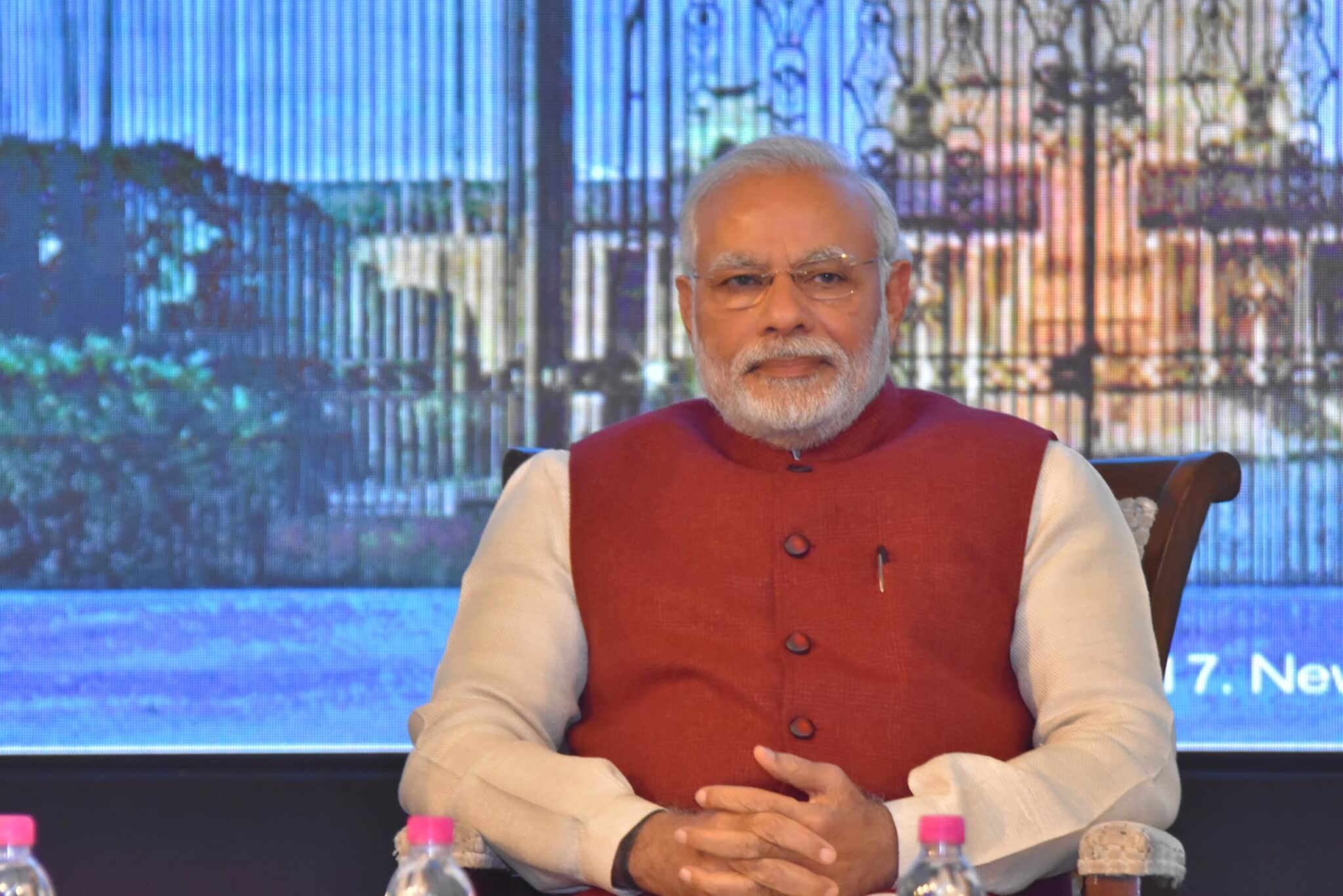Today’s World Mental Health Day 2025 brought a fresh message from India’s Prime Minister, Narendra Modi. He spoke out about the critical importance of mental well-being, a topic that touches millions across India and the globe.
PM Modi called mental health “a fundamental part of our overall well-being.” He urged everyone to help make conversations about mental health a normal, mainstream thing.
He posted his message on social media, asking for more compassion and awareness around challenges like anxiety and depression. It’s a reminder that these issues aren’t rare, and they’re not going away on their own.
The Prime Minister’s focus shows how much mental health matters—just as much as physical health, honestly. He wants people to talk openly and break down the walls that keep so many from getting help.
Key Takeaways – Mental Health Day
- PM Modi stressed mental health as a fundamental part of well-being on World Mental Health Day 2025.
- He called for making mental health conversations mainstream and cutting down on stigma.
- His message underlines the government’s commitment to tackling mental health challenges with compassion and awareness.
PM Modi’s Message and Vision on World Mental Health Day
Prime Minister Narendra Modi delivered a strong message, calling mental health a fundamental part of overall well-being. His vision is about making mental health conversations part of everyday life, especially in a fast-paced society like India’s.
Significance of World Mental Health Day for India
Modi said World Mental Health Day should serve as a powerful reminder for the country. He highlighted how important it is to address mental health challenges that affect so many people.
He called for an environment where talking about mental health feels normal. That’s a big shift for a country where stigma still runs deep.
This year, mental health awareness is gaining steam worldwide. Modi’s focus on the issue demonstrates the government’s commitment to making things better.
He also stressed the need for early intervention and professional support. Conditions like anxiety, depression, and substance use disorders, he said, deserve serious attention.
Mental Health as Fundamental to Overall Well-Being
Modi made it clear: mental health is a cornerstone of overall health. You really can’t separate mental well-being from physical health, can you?
He pointed out how mental health shapes every part of life. Good mental health lets people function, work, and live better.
He wants mental health challenges to get the same attention as physical ones. That’s a pretty big shift in thinking for a lot of folks.
His message really hammered home that true wellness means both mind and body. It’s not one or the other—it’s both.
Embracing Compassion and Empathy
Modi called for greater compassion when dealing with mental health. Empathy, he said, is key to helping those who are struggling.
He urged society to show understanding toward people facing mental health challenges. Supportive environments matter more than we think.
He also talked about the importance of reflection and compassion in today’s rushed world. The pressures of modern life aren’t going anywhere, so we need to look out for each other.
His vision? A society where everyone feels comfortable asking for help. Compassion and open dialogue, he said, are essential for real progress.
Normalizing Mental Health Conversations
Modi’s push for mainstream mental health discussions aims to break old barriers. His message focuses on reducing stigma and recognizing the value of professional support.
Breaking the Stigma in Indian Society
Cultural barriers have kept mental health conversations in the shadows for too long. Many families still see mental health problems as personal weaknesses.
Traditional beliefs often make people hide depression, anxiety, or other challenges. The fear of judgment from the community or workplace is real.
Modi’s message addresses these worries head-on. He wants talking about mental health to feel as normal as talking about a cold or a broken arm.
Social stigma keeps millions from seeking help. The fear of damaging family honor or reputation makes many suffer in silence.
The Prime Minister’s public stance gives people permission to open up. He encourages families to support—not hide—those who are struggling.
Promoting Open Dialogue and Awareness
Open conversations about mental health can literally save lives. Modi stressed the need for safe spaces for these talks.
Schools, workplaces, and communities need to step up awareness efforts. Sometimes, just talking can help someone spot warning signs and get help.
The Tele MANAS app now works in 12 languages, so more people can access resources. That’s a step in the right direction for reaching India’s diversity.
Public awareness campaigns help make mental health a regular topic. When leaders like Modi speak up, it gives others the courage to do the same.
Community leaders and influencers have a big role to play. Their support can finally start breaking down the fear and shame around mental health.
Recognizing the Role of Mental Health Professionals
Psychiatrists treat serious mental health conditions like depression, anxiety disorders, and bipolar disorder. They prescribe medication and offer specialized therapy.
Psychologists provide therapy and counseling but don’t prescribe meds. They help people learn coping skills and tackle emotional challenges.
Social workers connect people with resources and support systems. They often bridge the gap between patients and mental health services.
Nurses in mental health settings offer daily care and support. They keep tabs on progress and help roll out treatment plans.
Modi’s message praised these professionals. He thanked those who help others heal and find happiness through their work.
Professional support is just essential—no way around it. Modi’s recognition validates the tough, important work these folks do every day.
Government Initiatives Led by PM Modi
With PM Modi at the helm, the government has rolled out several programs to make mental healthcare more accessible. The Tele-MANAS platform offers 24/7 counseling, and national programs are reaching local communities through primary care centers.
Tele-MANAS: Expanding Access to Support
Tele-MANAS, launched in 2022, is one of the government’s biggest mental health initiatives. It gives people 24/7 mental health counseling in up to 20 languages.
The program runs through 53 Tele-MANAS cells in 36 states and union territories. Since its start, the platform has handled over 23.82 lakh calls from people seeking support.
Anyone can call and get immediate counseling. Trained counselors offer support in many languages, making sure nobody gets left out.
Key features include:
- 24/7 availability
- Support in multiple languages
- Free counseling
- Trained mental health professionals
- Crisis intervention
National Mental Health Programme and District Mental Health Programme
The National Mental Health Programme works to weave mental healthcare into India’s primary healthcare system. It focuses on training healthcare workers and setting up mental health services at the district level.
The District Mental Health Programme brings these services closer to communities. Each district gets resources to set up clinics and train local staff.
Both programs prioritize early detection and treatment. They also fight stigma with community campaigns and education.
The focus is on common issues like depression, anxiety, and substance abuse. Local healthcare workers get special training to spot and handle these conditions.
Integrating Mental Healthcare with Ayushman Arogya Mandir
Mental healthcare is now part of Ayushman Arogya Mandirs across India. These primary care centers offer mental health screening and basic counseling.
This move connects mental healthcare with the AB PM-JAY scheme, making it easier for low-income patients to get help. People can access mental health support alongside regular medical care.
Healthcare workers at these centers learn to spot mental health symptoms during checkups. This helps catch problems early, before they spiral.
The program also links Ayushman Arogya Mandirs to Tele-MANAS. If someone needs more help, they can connect with specialized counselors right from the clinic.
Mental Health Challenges and National Data
Mental health disorders touch millions in India, with anxiety and depression topping the list. National surveys show big gaps in awareness and treatment, both in normal times and emergencies.
Prevalence of Anxiety and Depression
Anxiety disorders affect about 3% of India’s population. That’s roughly 38 million people dealing with worry, panic, and fear every day.
Depression hits around 4.5% of Indians, making it a leading cause of disability. Women experience depression nearly twice as often as men.
Young adults (18-29) report the highest rates for both. Urban areas show slightly higher numbers, though reporting can be patchy.
Common symptoms include:
- Persistent sadness or worry
- Trouble sleeping
- Losing interest in things
- Physical complaints with no clear cause
Many people go untreated. Stigma and a shortage of professionals create a big treatment gap.
Findings from the National Mental Health Survey
The National Mental Health Survey gave us a clearer picture. It covered over 34,000 adults in 12 states.
Key findings:
- 10.6% of adults have mental health disorders
- Only 10-12% of those affected get treatment
- Substance use disorders impact 22.4% of the population
- Treatment gaps top 70% for most conditions
Rural areas struggle more to access services. There are just 0.75 psychiatrists per 100,000 people in India—barely enough.
Barriers include:
- Lack of awareness
- Few trained professionals
- High private care costs
- Cultural beliefs about mental illness
The numbers show an urgent need for more mental health infrastructure and local programs.
Addressing Mental Health Issues in Catastrophes
Disasters and emergencies make mental health challenges worse. Studies say 30-40% of disaster survivors develop psychological problems in the first year.
Common post-disaster issues:
- Post-traumatic stress disorder (PTSD)
- Acute stress reactions
- More anxiety and depression
- Substance abuse as a coping tool
Children and the elderly are especially at risk. Losing homes, loved ones, or community support only adds to the strain.
Emergency response plans now include psychological first aid. Community health workers learn to spot early signs of mental distress.
Recovery programs focus on:
- Rebuilding social connections
- Creating safe spaces for emotions
- Teaching healthy coping skills
- Connecting people to ongoing services
Early intervention—within that first month—really helps improve long-term outcomes for survivors.
World Mental Health Day 2025: Themes and Global Alignment
This year’s World Mental Health Day focuses on mental health support during emergencies and disasters. The World Health Organization is leading the global push, and India’s own initiatives are lining up with these priorities through new policies and broader services.
This Year’s World Mental Health Day Theme
The official theme for World Mental Health Day 2025 is “Mental Health in Humanitarian Emergencies.” It’s a topic that feels especially urgent, honestly, with so many crises and disasters happening around the world.
This year, the focus lands on the need for mental health support during conflicts, natural disasters, and other emergencies. The World Health Organization points out that one in five people experience mental health conditions in these situations.
That’s a staggering number. Crises can cause emotional upheaval and tear apart the support systems people rely on.
Key priorities include:
- Immediate crisis response – Delivering psychological first aid and rapid mental health services when disaster strikes
- Long-term recovery support – Helping communities rebuild and strengthen mental health systems over time
- Vulnerable population focus – Making sure refugees, migrants, children, and displaced folks aren’t left behind
This year’s theme really drives home how mental health care can save lives during disasters. Evidence-based interventions and community support networks aren’t just nice to have—they’re crucial tools in any emergency response.
Role of World Health Organization in Advocacy
The World Health Organization takes the lead on global mental health advocacy. They set policy, develop resources, and keep pushing the conversation forward, even when it’s tough.
WHO’s developed the Mental Health and Psychosocial Support Minimum Service Package for emergencies. In 2025, their campaign doubles down on the idea that mental health is essential for rebuilding lives after disaster strikes.
The organization gives governments technical guidance on weaving mental health services into emergency plans. That’s a big deal—so many places just aren’t ready when crisis hits.
Core WHO initiatives include:
- Publishing practical stress management guides for people in crisis
- Rolling out training programs for psychological first aid
- Creating mobile health platforms to reach folks in remote or hard-to-access areas
- Encouraging coordination between humanitarian groups and local health systems
WHO pushes for a layered approach to mental health support, from self-help tools all the way up to specialized clinical care. That way, people get the help they need, no matter where they are or what they’re facing.
India’s Approach in Global Mental Health Context
India lines up its mental health policies with the WHO’s emergency preparedness framework. The National Mental Health Programme and the Mental Healthcare Act 2017 both aim to expand access to mental health services, whether things are calm or chaotic.
They’ve rolled out district mental health programs that can kick in fast during emergencies. These programs rely on trained community health workers and mobile mental health units that spring into action for disaster response.
India’s approach includes:
- Blending mental health services into primary healthcare systems
- Telemedicine platforms so people can get remote mental health consultations
- Community-based rehabilitation programs for folks dealing with mental health conditions
- Training healthcare workers in psychological first aid—because you never know when you’ll need it
Honestly, the country’s focus on community mental health workers really backs up WHO’s push for accessible, culturally relevant care, especially in the middle of a crisis.
Finally, let’s remember the importance of Mental Health Day in our lives.
Celebrate this Mental Health Day by supporting mental health initiatives.
On this Mental Health Day, let’s unite for mental health awareness and support.
We must use Mental Health Day to advocate for mental health resources everywhere.
This Mental Health Day is an opportunity for education and awareness.
We should all take part in the conversations sparked by Mental Health Day.
Let’s strive for a world where Mental Health Day is recognized and celebrated widely.
Let’s ensure that Mental Health Day becomes a priority in our discussions.
Supporting each other is key this Mental Health Day and every day thereafter.
This Mental Health Day emphasizes the need for empathy in our communities.
Let us all take a moment to celebrate Mental Health Day and its significance.
Every effort counts on Mental Health Day to promote mental health awareness.
Join the movement this Mental Health Day to advocate for mental health resources.
This Mental Health Day, let’s work together to eliminate the stigma surrounding mental health.
Mental Health Day encourages open conversations about mental health challenges.
On Mental Health Day, we should all reflect on how we can contribute to better mental well-being.
Let’s use this Mental Health Day as a catalyst for change in our communities.
The message of Mental Health Day resonates with everyone, urging us to take action.
This Mental Health Day, let’s all commit to being more understanding and supportive.
Every year, Mental Health Day highlights the importance of mental wellness in society.
Understanding the significance of Mental Health Day can lead to better awareness and compassion.
Mental Health Day serves as a reminder that everyone should prioritize their mental health.
On this significant occasion of Mental Health Day, we recognize the importance of mental health in our daily lives.





